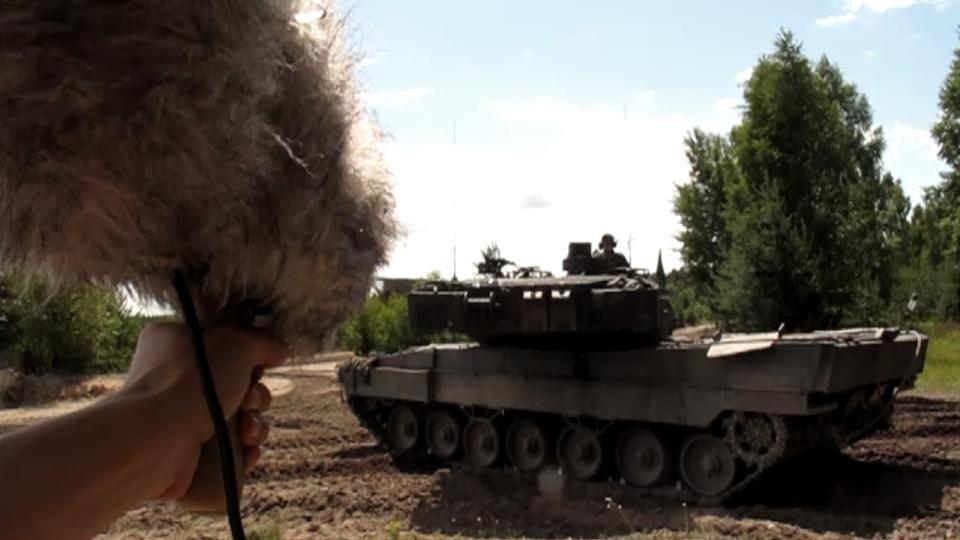We Can't Be There. Emergency Provisions for Un(Anticipated) Futures
Primary page content
How can artists and academics explore, engage and intervene in the future? Join international artists and Goldsmiths, University of London lecturers at the Tate Modern on Saturday 27 June to find out.

Image: Natascha Sadr Haghighian, pssst Leopard 2A7+
Mikhail Karikis and Iván Argote will lead ‘Acting in the Future’, a participatory workshop experimenting with performative practices, “providing a set of tools for future actions and irresponsible gestures”.
The workshop is followed by a 'We Can't Be There' seminar, chaired by curator Yasmina Reggad.
Dr Rebecca Coleman, Senior Lecturer in the Department of Sociology at Goldsmiths will talk on the ‘We Can't Be There’ series of events, exploring the problems that artists, designers, academics, writers and others have in attempting to think about and study the future.
“Across the social sciences, methods and approaches - often inspired by art and design - are currently being developed in order to explore and engage the future. This talk gives a brief overview of some of these approaches and poses some questions for further interdisciplinary projects and collaborations,” Dr Coleman explains.
Dr Coleman’s lecture will be followed by a live demonstration by artist Natascha Sadr Haghighian of her ongoing phonetic study and collection of mimetic acts on the open secrets around the Leopard 2A7 battle tank, specially designed and optimised by a German arms manufacturer for future pacification of uprisings, protests and unrest in urban areas.
Goldsmiths’ Dr Michael Guggenheim and Bernd Kräftner will then demonstrate methods they developed for researching disastrous futures in the form of an emergency provision experiment, in which participants were invited to create new worlds and use props to simulate disasters
£12, concessions available. Book through the Tate website.
We Can’t Be There. Emergency Provisions for Un(Anticipated) Futures was conceived by Yasmina Reggad in collaboration with Dr Rebecca Coleman and Dr Michael Guggenheim.
Previous events in the series include artists’ film screenings at the Institute of Contemporary Arts, a workshop and an Emergency Provision performative dinner at Delfina Foundation and a methods clinic at Goldsmiths.
The project is supported by the European Research Council Starting Grant ‘Organizing Disaster. Civil Protection and the Population’ and the Methods Lab, Department of Sociology, Goldsmiths.
(Image: Natascha Sadr Haghighian, pssst Leopard 2A7+. 2012–ongoing)